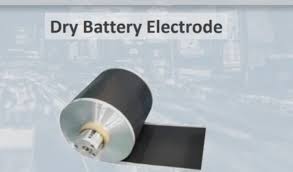
Breaking News
 Palantir kills people? But Who's Really Pushing the Buttons?
Palantir kills people? But Who's Really Pushing the Buttons?
 'Big Short' investor Michael Burry sounds alarm on AI bubble that's 'too big to save
'Big Short' investor Michael Burry sounds alarm on AI bubble that's 'too big to save
 2026-01-21 -- Ernest Hancock interviews Professor James Corbett (Corbett Report) MP3&4
2026-01-21 -- Ernest Hancock interviews Professor James Corbett (Corbett Report) MP3&4
 Joe rogan reacts to the Godfather of Ai Geoffrey Hinton talk of his creation
Joe rogan reacts to the Godfather of Ai Geoffrey Hinton talk of his creation
Top Tech News
 The day of the tactical laser weapon arrives
The day of the tactical laser weapon arrives
 'ELITE': The Palantir App ICE Uses to Find Neighborhoods to Raid
'ELITE': The Palantir App ICE Uses to Find Neighborhoods to Raid
 Solar Just Took a Huge Leap Forward!- CallSun 215 Anti Shade Panel
Solar Just Took a Huge Leap Forward!- CallSun 215 Anti Shade Panel
 XAI Grok 4.20 and OpenAI GPT 5.2 Are Solving Significant Previously Unsolved Math Proofs
XAI Grok 4.20 and OpenAI GPT 5.2 Are Solving Significant Previously Unsolved Math Proofs
 Watch: World's fastest drone hits 408 mph to reclaim speed record
Watch: World's fastest drone hits 408 mph to reclaim speed record
 Ukrainian robot soldier holds off Russian forces by itself in six-week battle
Ukrainian robot soldier holds off Russian forces by itself in six-week battle
 NASA announces strongest evidence yet for ancient life on Mars
NASA announces strongest evidence yet for ancient life on Mars
 Caltech has successfully demonstrated wireless energy transfer...
Caltech has successfully demonstrated wireless energy transfer...
 The TZLA Plasma Files: The Secret Health Sovereignty Tech That Uncle Trump And The CIA Tried To Bury
The TZLA Plasma Files: The Secret Health Sovereignty Tech That Uncle Trump And The CIA Tried To Bury
Tesla's Maxwell Dry Battery and a Five Year Lead on the World

Maxwell has a path with 15-25% improvement every 2-3 years. This should lead to 500 Wh/kg by 2027. This would give Tesla a 5 year battery lead on the rest of the world. Tesla could get a three year pure technology lead and a two year lead by more rapidly scaling production at its gigafactories. Tesla could reach $50 per kilowatt-hour with 500 Wh/kg. This would mean half the weight in batteries while producing the save level of energy as the best 250 Wh/kg batteries of today. This would mean $4000 instead of $12000 in batteries for an 80 kWh battery pack. This would enable far better electric trucks. Electric semi-trucks need to use up nearly half of their cargo capacity on heavy batteries. Energy dense batteries will make longer range electric trucks with competitive cargo capacity. The batteries could also enable electric planes to be competitive flying 100-200 passengers from Los Angeles to San Francisco. The batteries will make new disruptive products feasible. Japan and China's government battery programs have each targeted 500Wh/kg. The US DOE has a similar battery program called Battery500. There are various programs mostly focused around solid state batteries and lithium sulfur batteries. Both have had some commercialization with gadgets or applicances but not cars. They are targeting the same kind of performance as Tesla's Dry battery technology. However, it currently appears that Tesla could have an advantage getting the new technology into cars and using them to lower costs and boost performance.

 Nano Nuclear Enters The Asian Market
Nano Nuclear Enters The Asian Market


